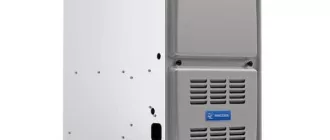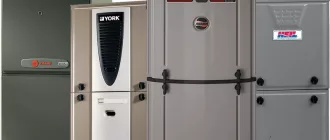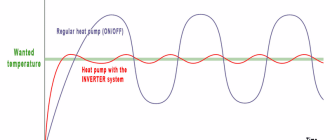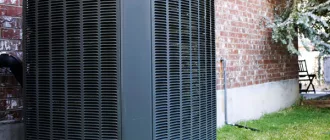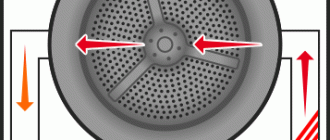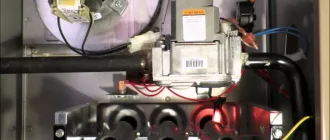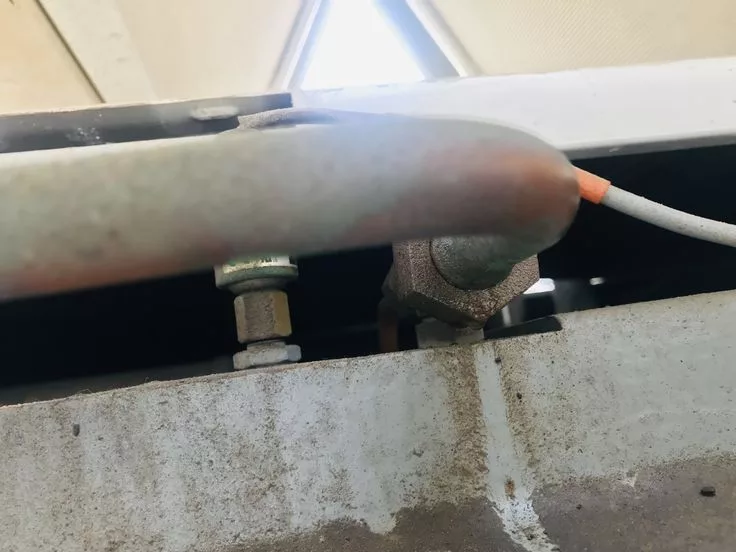
Hot Leak in HVAC Systems: Causes, Symptoms, and Solutions
When it comes to HVAC systems, one of the most challenging issues that homeowners and technicians face is a hot leak. A hot leak occurs when heat escapes from the system, leading to poor energy efficiency and increased costs. Understanding the causes, symptoms, and solutions of a hot leak is essential for maintaining a properly functioning HVAC system.
Causes: There are several potential causes of a hot leak in HVAC systems. One common cause is poor insulation around the ductwork or air handler, which allows heat to escape. Another cause can be a malfunctioning or damaged seal in the system, which can result in hot air leaking out. Additionally, improper installation or maintenance practices can contribute to a hot leak.
Symptoms: There are several telltale signs that indicate a hot leak in an HVAC system. One of the most obvious symptoms is uneven heating or cooling in different areas of the home. Another symptom can be an increase in energy bills, as the system has to work harder to compensate for the hot air loss. Additionally, if you notice that your HVAC unit is constantly running or cycling on and off frequently, it could be a sign of a hot leak.
Solutions: To address a hot leak in an HVAC system, it is essential to identify the root cause. If insulation is the problem, adding or replacing insulation in the ductwork or air handler can help prevent heat loss. If a seal is damaged, it should be repaired or replaced promptly. Regular maintenance and inspections can also help identify and address any potential issues before they become major hot leaks. Lastly, consulting with an HVAC expert can provide valuable advice and guidance for efficiently resolving the hot leak.
Dealing with a hot leak in an HVAC system requires swift action and a comprehensive approach. By understanding the causes, recognizing the symptoms, and implementing the appropriate solutions, homeowners can ensure their HVAC systems operate efficiently and effectively, providing optimal comfort and energy savings.
Hot Leak in HVAC Systems: Causes, Symptoms, and Solutions – Expert Advice
HVAC systems are essential for maintaining comfortable temperatures in our homes and buildings. However, a hot leak in these systems can cause major problems and discomfort. It is important to know the causes, symptoms, and solutions for dealing with a hot leak in your HVAC system.
Causes:
A hot leak in HVAC systems can be caused by various factors. Some common causes include:
- Worn out or damaged seals and gaskets
- Cracked heat exchanger
- Leaking refrigerant
- Blocked or obstructed air ducts
Symptoms:
There are several symptoms that can indicate a hot leak in your HVAC system:
- Inadequate cooling or heating
- Inconsistent temperatures in different rooms
- Increased energy bills
- Strange noises coming from the system
- Unpleasant odors
Solutions:
Dealing with a hot leak in your HVAC system requires professional expertise. Here are some solutions that experts recommend:
- Regular maintenance and inspections to detect leaks early
- Sealing and repairing worn-out seals and gaskets
- Replacing a cracked heat exchanger
- Identifying and fixing refrigerant leaks
- Cleaning and unblocking air ducts for proper airflow
Remember, it is always best to consult with a certified HVAC technician to accurately diagnose and address any hot leak issues in your system. Ignoring or attempting to fix the problem yourself can lead to more damage and costly repairs in the long run.
Expert advice: Regular maintenance and prompt repairs are key to preventing and addressing hot leaks in HVAC systems. Don’t wait until the problem escalates; reach out to a professional for expert assistance.
Understanding Hot Leak
In HVAC systems, a hot leak refers to the unintentional release of heat from the system, causing inefficiency and potential damage. This can occur due to various causes and present different symptoms. Understanding the causes, symptoms, and solutions for hot leaks is essential in maintaining the optimal performance of HVAC systems.
Several factors can cause hot leaks in HVAC systems. One common cause is a damaged or faulty seal, gasket, or valve. These components can deteriorate over time, resulting in the escape of hot air or coolant from the system. Poor insulation or improper installation can also contribute to hot leaks.
The symptoms of a hot leak in an HVAC system may include reduced cooling or heating performance, increased energy consumption, uneven temperatures across different areas, or a noticeable increase in the system’s noise levels. In some cases, water leaks or ice formation may also be evident.
Addressing a hot leak requires identifying the specific cause and taking appropriate corrective measures. This may involve repairing or replacing damaged seals, gaskets, or valves. Improving insulation or repositioning ductwork can also help prevent hot leaks. Regular maintenance and inspections are crucial for identifying and resolving hot leaks before they cause significant damage to the HVAC system.
In conclusion, understanding hot leaks in HVAC systems is vital for maintaining their efficiency and preventing further damage. By being aware of the causes, symptoms, and solutions for hot leaks, HVAC professionals can take the necessary steps to detect, prevent, and resolve these issues, ensuring optimal system performance and longevity.
The Importance of HVAC Systems
HVAC systems play a crucial role in maintaining a comfortable and healthy indoor environment. They regulate temperature, control humidity levels, and ensure a constant supply of fresh air. Without proper functioning HVAC systems, buildings can become unbearably hot or cold, leading to discomfort and compromised productivity.
Solutions for hot leaks in HVAC systems are necessary to prevent various symptoms that can arise. These symptoms include increased energy consumption, reduced airflow, poor air quality, and uneven temperatures throughout the building. By addressing hot leaks promptly, building owners can avoid these problems and maintain optimal comfort levels for occupants.
One of the main causes of hot leaks in HVAC systems is leakage in air ducts. Air ducts can develop cracks or gaps over time, allowing hot air to escape into unconditioned spaces. This not only compromises the effectiveness of the HVAC system but also leads to energy wastage and increased utility bills.
To prevent hot leaks, regular inspection and maintenance of HVAC systems are necessary. Additionally, sealing any cracks or gaps in air ducts can effectively address hot leaks and improve the overall efficiency of the system.
Overall, the importance of HVAC systems cannot be overstated. They not only provide comfort but also contribute to the well-being and productivity of building occupants. By addressing hot leaks and maintaining the integrity of HVAC systems, building owners can ensure a pleasant indoor environment while minimizing energy consumption and costs.
Causes of Hot Leak in HVAC Systems
A hot leak in HVAC systems can occur due to various factors. Here are some common causes:
- 1. Poor insulation: Insufficient or degraded insulation can lead to hot air escaping from the HVAC system. This can result in increased energy consumption and reduced efficiency.
- 2. Damaged ductwork: Cracks, holes, or loose connections in the ductwork can cause hot air to leak out. This not only reduces the effectiveness of the system but also leads to energy wastage.
- 3. Faulty seals: If the seals around the vents or windows are damaged or improperly installed, hot air can escape through these gaps. Regular inspection and maintenance of seals are important to prevent leaks.
- 4. Clogged filters: When the filters in HVAC systems get clogged with dust and debris, the airflow is obstructed. This can cause the system to overheat and result in hot air leaks.
- 5. Inadequate system sizing: HVAC systems that are too large for the space they are intended to cool or heat can cause uneven heating or cooling. This can lead to hot or cold spots and the need for excess energy consumption.
It is important to address the causes of hot leaks in HVAC systems promptly to ensure optimal performance, energy efficiency, and comfort. Regular maintenance and inspection by HVAC professionals can help identify and resolve any issues before they become larger problems.
Identifying Hot Leak Symptoms
Hot leaks in HVAC systems can cause a number of noticeable symptoms that can help you identify the problem. Here are some common symptoms to look out for:
1. Increased energy bills: A hot leak in your HVAC system can cause a significant increase in your energy bills. If you notice a sudden spike in your monthly energy costs, it may be a sign of a hot leak.
2. Reduced cooling or heating performance: Hot leaks can interfere with the proper functioning of your HVAC system, leading to reduced cooling or heating performance. If you notice that your home is not reaching the desired temperature, or if certain areas in your home are significantly hotter than others, it may indicate a hot leak.
3. Uneven airflow: Another symptom of a hot leak is uneven airflow throughout your home. You may notice that some rooms feel significantly warmer or colder than others, indicating that the air is not being distributed evenly by the HVAC system.
4. Hot spots near HVAC ducts or equipment: Hot leaks can cause hot spots to develop near HVAC ducts or equipment. If you feel excessive heat coming from these areas, it may suggest the presence of a hot leak.
5. Constantly running HVAC system: A hot leak can cause your HVAC system to run continuously in an effort to compensate for the loss of conditioned air. If you find that your system is constantly running, it may be a sign of a hot leak.
If you experience any of these symptoms, it is important to take action promptly. Ignoring a hot leak can lead to further damage to your HVAC system and potentially higher repair costs. Contacting a professional HVAC technician is recommended to accurately diagnose and resolve the issue.
Consequences of Ignoring Hot Leak
Ignoring a hot leak in HVAC systems can have serious consequences on both the system’s performance and the overall comfort of the building.
One of the most immediate consequences of ignoring a hot leak is reduced energy efficiency. A leaking HVAC system means that hot air is escaping, causing the system to work harder to maintain the desired temperature. This can lead to increased energy consumption and higher utility bills.
Another consequence is poor indoor air quality. A hot leak allows outside air, dust, and pollutants to enter the system and circulate throughout the building. This can cause allergies, respiratory problems, and other health issues for the occupants.
Furthermore, a hot leak can put additional strain on the HVAC system, leading to premature wear and tear. The system will have to work harder and longer to compensate for the lost heat, which can result in breakdowns and costly repairs.
Ignoring a hot leak can also impact the overall comfort of the building. The uneven distribution of hot air can create hot or cold spots, making certain areas uncomfortable to occupy.
To avoid these consequences, it is crucial to address hot leaks promptly. Regular maintenance, proper insulation, and sealing any leaks are some of the solutions to prevent hot leaks in HVAC systems. Taking these preventive measures can ensure optimal system performance, energy efficiency, and a comfortable environment for the occupants.
Expert Tips for Hot Leak Prevention
Preventing hot leaks in HVAC systems is crucial to maintaining efficient heating and cooling. Here are some expert tips to help you prevent hot leaks:
- Regularly inspect your HVAC system for any signs of leaks, such as hot spots or unusual noises. Early detection is key to preventing further damage.
- Seal all ductwork properly to prevent hot air from leaking out. Use duct tape or mastic sealant to seal any gaps or leaks in the ductwork.
- Insulate your HVAC ducts to prevent heat loss. Proper insulation can help keep the hot air inside the ducts and prevent leaks.
- Clean and replace air filters regularly. Dirty filters can restrict airflow and cause the system to overheat, leading to potential leaks.
- Maintain proper airflow throughout your HVAC system by keeping vents and registers clear of any obstructions. Blocked vents can cause pressure imbalances and potentially lead to hot leaks.
- Schedule regular maintenance with a professional HVAC technician to ensure your system is in good working condition and to identify any potential issues before they turn into hot leaks.
- Consider investing in a programmable thermostat to regulate temperature settings and prevent overheating, which can lead to leaks.
By following these expert tips, you can minimize the risk of hot leaks in your HVAC system and maintain efficient heating and cooling throughout your home or business.
Regular Maintenance to Prevent Hot Leak
Regular maintenance is crucial for preventing hot leaks in HVAC systems. By performing routine inspections and taking proactive measures, you can minimize the risk of hot leaks occurring and ensure the optimal functioning of your HVAC system.
One of the key causes of hot leaks is inadequate insulation. Over time, the insulation material may degrade or become damaged, leading to heat loss or transfer in unwanted areas. Regularly inspecting and replacing insulation where necessary can help prevent hot leaks.
Another common cause of hot leaks is faulty seals or gaskets. Seals and gaskets help to create a tight seal between different HVAC components, preventing hot air from escaping. However, with time, these components can deteriorate or become damaged, leading to leaks. It is essential to inspect and replace seals and gaskets as part of regular maintenance to prevent hot leaks.
Regularly cleaning and maintaining ductwork is also crucial in preventing hot leaks. Dust, debris, and other contaminants can accumulate in the ducts, obstructing airflow and causing hot air to escape. Cleaning ductwork and ensuring it is properly sealed can help maintain the efficiency and integrity of the HVAC system, minimizing the risk of hot leaks.
In addition to these preventive measures, regular HVAC system inspections by professionals can identify potential causes or symptoms of hot leaks. HVAC technicians can detect issues such as damaged components, restricted airflow, or inefficient insulation. By addressing these issues promptly, you can prevent hot leaks from occurring and ensure the efficient operation of your HVAC system.
In conclusion, regular maintenance is essential to prevent hot leaks in HVAC systems. By ensuring proper insulation, inspecting and replacing seals and gaskets, cleaning ductwork, and conducting routine inspections, you can minimize the risk of hot leaks and maintain the optimal performance of your HVAC system.
Signs That Your HVAC System May Have a Hot Leak
If you suspect that your HVAC system has a hot leak, it’s important to address the issue as soon as possible. Ignoring a hot leak can lead to further damage and increased energy costs. Here are some common symptoms that may indicate a hot leak in your HVAC system:
- Unusual increase in energy bills: If you’ve noticed a sudden spike in your energy bills without any significant changes in usage, it could be a sign that your HVAC system is leaking hot air.
- Inconsistent temperature: If you’re experiencing hot or cold spots throughout your home despite having a functioning HVAC system, it may be due to a hot leak. This can result in uneven heating or cooling and discomfort.
- Frequent system cycling: If your HVAC system is turning on and off frequently, it may be a sign that it’s struggling to maintain the desired temperature. A hot leak can cause your system to work harder, resulting in increased cycling.
- Reduced air flow: If you’ve noticed a decrease in the amount of air coming from your vents, it could be due to a hot leak. The leak can disrupt the airflow, making your HVAC system less efficient in delivering conditioned air.
- Musty or burning smell: A hot leak can cause dust or debris to accumulate near the leak area. This can result in a musty or burning smell when the air circulates through the HVAC system.
- Visible damage: In some cases, you may be able to visually spot a hot leak in your HVAC system. Look for signs of cracked or damaged ductwork, disconnected joints, or gaps where hot air may be escaping.
If you suspect a hot leak in your HVAC system, it’s recommended to enlist the help of a professional HVAC technician. They can diagnose the exact cause of the leak and provide the necessary solutions. Common solutions for HVAC hot leaks include sealing or repairing ductwork, replacing damaged components, or installing insulation to prevent heat loss.
Addressing a hot leak in your HVAC system promptly can not only improve its efficiency but also prevent further damage and extend its lifespan. Regular maintenance and inspections can help detect and prevent hot leaks before they become major issues.
Steps to Take When Discovering a Hot Leak
Discovering a hot leak in your HVAC system can be a cause for concern. It is important to take immediate action to prevent any further damage and ensure the safety and efficiency of your system. Here are some steps to take when you discover a hot leak:
1. Turn off the HVAC system: The first step is to shut off the HVAC system completely. This will help prevent any further leaking and reduce the risk of fire or other hazards.
2. Identify the source of the leak: Carefully inspect your HVAC system to locate the source of the hot leak. Look for any signs of steam or hot air coming from the system.
3. Check for signs of damage: Examine the surrounding area for any signs of damage, such as water stains, discoloration, or rust. This can help you determine the cause of the hot leak.
4. Call a professional HVAC technician: It is recommended to seek the help of a professional HVAC technician to diagnose and repair the hot leak. They have the expertise and tools to fix the issue safely and effectively.
5. Follow expert advice: Once the technician identifies the cause of the hot leak, they will provide you with solutions to fix the problem. Follow their advice and take necessary measures to prevent future leaks.
6. Regular maintenance: To avoid hot leaks in the future, schedule regular maintenance for your HVAC system. This will help identify and fix any potential issues before they become major problems.
By following these steps, you can effectively address and resolve a hot leak in your HVAC system. Remember, quick action and professional assistance are key to maintaining the efficiency and safety of your system.
Hot Leak Repair Options
Symptoms:
When it comes to HVAC systems, identifying a hot leak can be challenging. Fortunately, there are some symptoms that can help you pinpoint the issue. Signs of a hot leak include:
| – Uneven heating or cooling throughout the space |
| – Increased energy bills due to the system working harder than usual |
| – Reduced system efficiency and performance |
| – Strange noises coming from the HVAC system |
Causes:
Hot leaks in HVAC systems can have various causes. Some common reasons for hot leaks include:
| – Damaged or deteriorated ductwork |
| – Improper installation of the HVAC system |
| – Faulty seals or gaskets |
| – Insufficient insulation |
Solutions:
When it comes to repairing a hot leak in your HVAC system, there are several options available:
| – Duct sealing: By sealing any leaks in your ductwork, you can prevent hot air from escaping and ensure efficient airflow. |
| – Duct insulation: Adding insulation to your ductwork can help prevent heat transfer, reducing the chances of a hot leak. |
| – HVAC system maintenance: Regular maintenance, including cleaning and inspection, can help identify and fix any potential hot leaks. |
| – Professional repair services: If the hot leak is severe or you are unsure about fixing it yourself, it’s best to hire a professional HVAC technician. |
Don’t let a hot leak in your HVAC system go unaddressed. By identifying the symptoms, understanding the causes, and exploring the available repair options, you can ensure optimal performance and energy efficiency in your HVAC system.
Common DIY Hot Leak Fixes
If you are experiencing a hot leak in your HVAC system, there are several common fixes that you can try yourself before calling in a professional. Here are some common DIY solutions for fixing a hot leak:
1. Check for loose or damaged ductwork: Inspect your HVAC system’s ductwork for any loose or disconnected sections. Secure any loose connections and repair any damaged ductwork using foil tape or mastic sealant.
2. Insulate the ductwork: Adding insulation to your HVAC system’s ductwork can help prevent hot leaks. Wrap insulation around the ductwork to keep the air inside from escaping and to prevent outside air from entering.
3. Seal leaks in the ductwork: Use mastic sealant or foil tape to seal any leaks or gaps in the ductwork. Pay special attention to joints and transitions where leaks are most likely to occur.
4. Clean or replace air filters: Dirty or clogged air filters can restrict airflow in your HVAC system, causing it to work harder and potentially leading to hot leaks. Clean or replace air filters regularly to maintain proper airflow and prevent hot leaks.
5. Check and adjust the thermostat: Make sure your thermostat is set correctly and functioning properly. If it is not reading the temperature accurately, it may be causing your HVAC system to work harder than necessary, leading to hot leaks. Adjust the thermostat or replace it if needed.
6. Schedule regular maintenance: Regular maintenance for your HVAC system can help prevent hot leaks and other issues. Have a professional inspect and tune up your system at least once a year to ensure it is running efficiently.
While these common DIY fixes can often resolve hot leak issues in HVAC systems, it’s important to remember that some problems may require the expertise of a professional. If you are unable to fix the hot leak or if it persists after attempting these fixes, it’s recommended to contact a licensed HVAC technician for further assistance.
When to Call an HVAC Professional for Hot Leak Repair
If you notice that your HVAC system is not working as efficiently as it should and there is a hot leak present, it is important to call an HVAC professional for repair. Ignoring the issue or attempting to fix it yourself can lead to further damage and potentially expensive repairs.
There are several causes for a hot leak in HVAC systems, such as refrigerant leaks, faulty valves, or clogged filters. These issues can cause the system to work harder, resulting in decreased cooling efficiency and increased energy consumption.
One of the main symptoms of a hot leak is when your HVAC system is unable to maintain a consistent temperature. You may notice that certain areas of your home are warmer than others, or that your system is constantly running but not able to cool the space effectively.
In some cases, you may also detect a strange odor coming from your HVAC system. This can be a sign of a refrigerant leak, which is a serious issue that requires immediate attention from a professional.
If you experience any of these symptoms or suspect a hot leak in your HVAC system, it is crucial to contact an HVAC professional. They have the knowledge and expertise to accurately diagnose the issue and provide the necessary repairs.
Attempting to fix a hot leak yourself can be dangerous and may cause further damage to your HVAC system. It is best to leave the repair work to the professionals who have the proper tools and training to handle the job safely and effectively.
By calling an HVAC professional for hot leak repair, you can ensure that your system is back up and running efficiently, saving you money on energy bills and preventing any further damage to your HVAC system.
In conclusion, if you notice a hot leak in your HVAC system, do not hesitate to call an HVAC professional. They can identify the cause of the leak and provide the necessary solutions to repair it, ensuring that your system operates efficiently and effectively.
Hot Leak Solutions for Different Types of HVAC Systems
Hot leaks in HVAC systems can be caused by a variety of factors, including faulty ductwork, improper insulation, and worn-out components. These leaks can result in decreased system efficiency and increased energy consumption, as well as discomfort for occupants. However, there are several solutions available to address hot leaks in different types of HVAC systems:
1. Ductwork Insulation:
One common cause of hot leaks is poorly insulated ductwork. Insulating the ducts can help prevent heat transfer between the system and the surrounding air, reducing energy loss and maintaining a comfortable temperature. Fiberglass insulation and foil-faced insulation are two popular options for duct insulation.
2. Sealant Application:
Another solution is to apply a sealant to the ducts to close any gaps or cracks that may be causing hot leaks. There are various types of sealants available, such as mastic sealant and duct tape, that can effectively seal the ductwork and prevent air leakage.
3. Component Replacement:
If the hot leak is caused by worn-out or damaged components, such as a faulty seal or gasket, it may be necessary to replace the affected parts. This can help restore the system’s efficiency and eliminate the hot leak issue.
4. Proper Maintenance:
Regular maintenance is essential for preventing hot leaks in HVAC systems. This includes cleaning or replacing air filters, inspecting ductwork for any signs of damage, and ensuring that all components are functioning properly. By maintaining the system, potential hot leaks can be identified and addressed before they become significant issues.
5. Upgrading to a More Efficient System:
In some cases, upgrading to a more energy-efficient HVAC system may be the best solution for addressing hot leaks. Newer systems are designed to minimize air leakage and improve overall efficiency, providing better comfort and energy savings.
By implementing these solutions, homeowners and building owners can effectively address hot leaks in HVAC systems and optimize the performance of their heating and cooling systems.
Q&A:
What are the common causes of a leak in HVAC systems?
There are several common causes of a leak in HVAC systems, including corrosion, wear and tear, poor installation, and high pressure.
How can I know if there is a leak in my HVAC system?
There are several symptoms that can indicate a leak in your HVAC system, such as reduced cooling or heating efficiency, increased energy bills, strange odors, or water pooling around the unit.
What should I do if I suspect a leak in my HVAC system?
If you suspect a leak in your HVAC system, it is recommended to call a professional HVAC technician to inspect and repair the system. They have the expertise and tools to properly diagnose and fix the issue.
Can I fix a leak in my HVAC system on my own?
While some minor leaks can be fixed by homeowners, it is generally not recommended to attempt DIY repairs on HVAC systems. HVAC systems are complex and require specialized knowledge and tools for proper repair. It is best to leave the job to a professional technician.
How can I prevent leaks in my HVAC system?
To prevent leaks in your HVAC system, it is important to schedule regular maintenance by a professional technician. They can inspect and clean the system, identify potential issues, and make necessary repairs. Additionally, it is important to keep the area around the unit clean and free from debris.
What are some common causes of hot leaks in HVAC systems?
Common causes of hot leaks in HVAC systems include deteriorated or damaged ductwork, improper installation, and gaps or cracks in the system.

